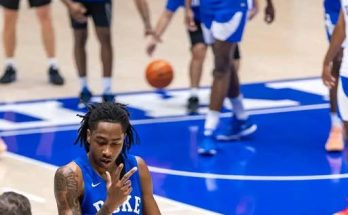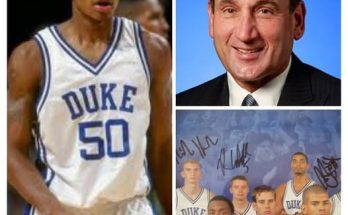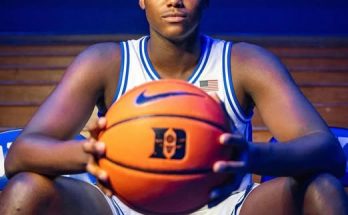Jake Fromm’s move from the gridiron to the broadcast booth marks an exciting new chapter not only in his career but also in the world of college football analysis. Known for his poise, football IQ, and leadership as a quarterback during his playing days, Fromm is uniquely positioned to offer fans a fresh and insightful perspective on the game this fall. His transition into the role of college football analyst reflects a growing trend of former players leveraging their firsthand experience to enhance viewers’ understanding of the sport.
Fromm’s football journey began in earnest at the University of Georgia, where he took over the starting quarterback role as a true freshman in 2017. Quickly, he showed a knack for managing high-pressure situations and leading a top-tier SEC program through intense competition. Over the course of his collegiate career, Fromm earned a reputation as a smart, composed signal-caller who could read defenses effectively and execute game plans with precision. Though he did not ultimately reach the NFL heights some expected, his deep knowledge of the college game, combined with his ability to communicate complex concepts clearly, makes him a natural fit for the analyst role.
The role of a college football analyst has evolved significantly in recent years. Today’s analysts are expected not only to provide play-by-play breakdowns and strategic insights but also to engage audiences with context, storytelling, and a deep understanding of the sport’s nuances. Former players like Fromm bring an invaluable authenticity to the booth, as their experience allows them to dissect plays with a level of detail that resonates with both casual viewers and hardcore fans alike. Fromm’s firsthand perspective on the challenges faced by quarterbacks and offensive units will enrich broadcasts and deepen fan engagement.
One of the key strengths Fromm brings to his new role is his ability to translate complex football strategies into accessible commentary. While football is inherently complex, viewers appreciate analysts who can demystify plays without oversimplifying. Fromm’s background as a quarterback—the position often described as the “field general”—means he has a unique vantage point on offensive schemes, defensive adjustments, and the split-second decisions players make on the field. His insights can help viewers appreciate the chess match unfolding during each game, enhancing their overall experience.
Moreover, Fromm’s transition to analyst comes at an exciting time for college football. The sport is undergoing significant changes, from evolving offensive systems and rule adjustments to shifts in player development and recruitment dynamics. Having a former player who experienced some of these changes firsthand will provide valuable perspective. Fromm can draw on his own experiences navigating college football’s landscape to comment on how teams adapt, how coaches innovate, and how players manage the pressures both on and off the field.
Another important aspect of Fromm’s analyst role is his ability to connect with younger audiences. College football continues to attract a broad and diverse fan base, including many who are new to the sport or who primarily engage through digital platforms and social media. As a relatively young analyst who recently played at a high level, Fromm is well positioned to bridge the gap between traditional broadcast audiences and newer, tech-savvy fans. His presence in the booth and on social media can help expand the sport’s reach and attract fresh interest.
Fromm’s personality and communication style also contribute to his potential success as an analyst. Known for his calm demeanor and thoughtful approach as a player, he brings a sense of credibility and professionalism to his commentary. This tone fits well within the broadcast environment, where analysts must balance enthusiasm with analytical rigor. Additionally, Fromm’s background as a leader on and off the field enables him to provide nuanced perspectives on team dynamics, player mentality, and leadership challenges, topics that resonate deeply with viewers interested in more than just the X’s and O’s.
The transition from player to analyst is not without its challenges. Broadcasting requires different skills, such as the ability to think quickly on air, engage in meaningful dialogue with co-hosts and interview subjects, and maintain viewer interest through storytelling. However, many former players have successfully made this leap by leveraging their football knowledge and developing their broadcasting skills through training and experience. Fromm’s decision to embrace this new path demonstrates his willingness to grow and adapt, qualities that will serve him well in the analyst role.
In addition to on-air responsibilities, Fromm’s involvement in college football media offers opportunities to shape the sport’s narrative positively. Analysts influence public perceptions of players, teams, and coaching philosophies. With his firsthand experience and balanced perspective, Fromm can help foster greater appreciation for the hard work and complexities inherent in college football. He can highlight the human side of the game—stories of perseverance, teamwork, and growth—that often get lost in the headlines and statistics.
Fromm’s analyst role also provides an important platform for his continued personal and professional development. Transitioning from playing to broadcasting is a step many athletes consider as they seek to stay connected to the sport they love. For Fromm, this new career phase allows him to build a lasting presence in the football community beyond his playing days. It opens doors to opportunities such as guest appearances, hosting shows, podcasting, and eventually more senior roles in sports media.
Looking ahead, fans can expect Fromm to bring the same dedication and preparation to his analyst duties that he displayed as a quarterback. His work ethic and attention to detail will be crucial in studying team tendencies, understanding emerging trends, and staying current with college football developments. By doing so, Fromm will ensure his commentary remains insightful and relevant, helping viewers navigate the fast-paced and ever-changing landscape of college football.
Fromm’s debut as a college football analyst also highlights a broader trend of former players shaping the future of sports broadcasting. Networks increasingly recognize the value of authentic voices who have experienced the game firsthand. This trend enriches broadcasts with deeper analysis and fosters a connection between the audience and the sport’s personalities. As more athletes prepare for post-playing careers, Fromm’s successful transition may inspire others to consider similar paths in media and communication.
In summary, Jake Fromm’s move into college football analysis promises to add a compelling new dimension to fall broadcasts. His extensive experience as a quarterback, combined with his ability to communicate clearly and connect with diverse audiences, equips him well for this role. Fans can look forward to insightful breakdowns, engaging storytelling, and a fresh perspective on the college game. Fromm’s analyst career is poised to be a rewarding continuation of his football journey, benefiting both himself and the millions of college football fans eager to deepen their understanding of the sport.
As the college football season approaches, all eyes will be on Fromm to see how he adapts to his new role and contributes to the broadcast landscape. Given his background and skill set, there is every reason to believe he will succeed and make a meaningful impact as a trusted voice in college football analysis. His story is a reminder that the game extends far beyond the field, and for players like Fromm, the passion for football continues in new and exciting ways.



